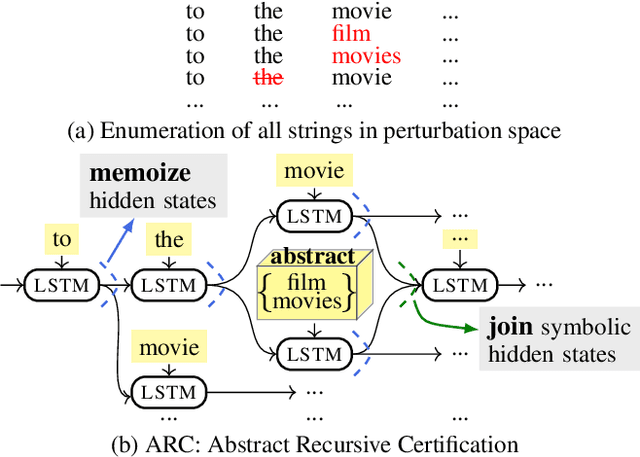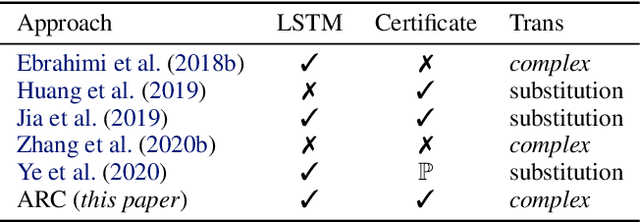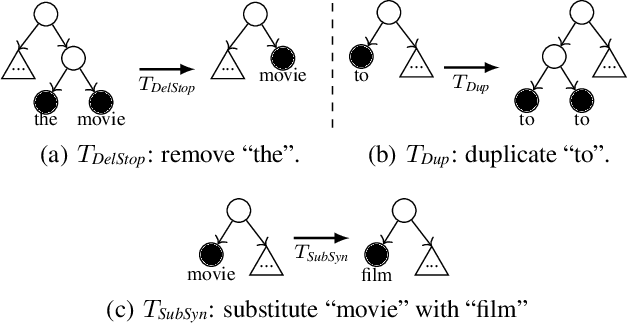Certified Robustness to Programmable Transformations in LSTMs
Paper and Code
Feb 15, 2021



Deep neural networks for natural language processing are fragile in the face of adversarial examples--small input perturbations, like synonym substitution or word duplication, which cause a neural network to change its prediction. We present an approach to certifying the robustness of LSTMs (and extensions of LSTMs) and training models that can be efficiently certified. Our approach can certify robustness to intractably large perturbation spaces defined programmatically in a language of string transformations. The key insight of our approach is an application of abstract interpretation that exploits recursive LSTM structure to incrementally propagate symbolic sets of inputs, compactly representing a large perturbation space. Our evaluation shows that (1) our approach can train models that are more robust to combinations of string transformations than those produced using existing techniques; (2) our approach can show high certification accuracy of the resulting models.
 Add to Chrome
Add to Chrome Add to Firefox
Add to Firefox Add to Edge
Add to Edge